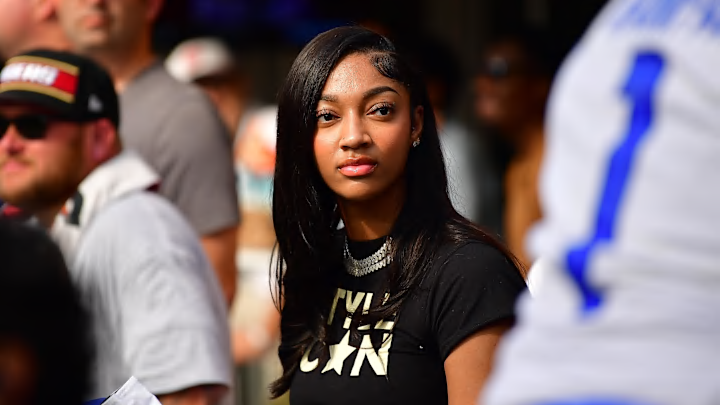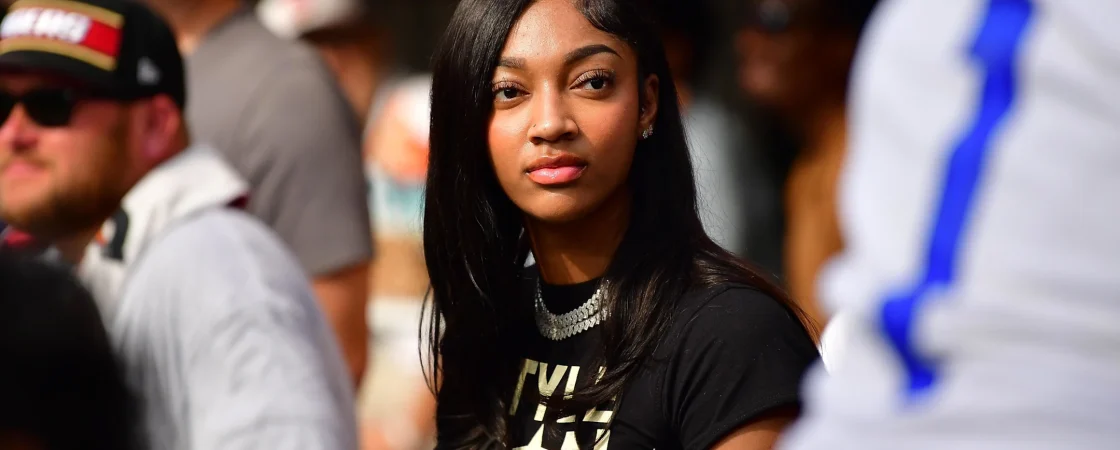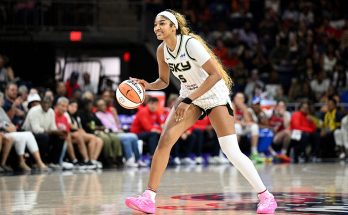
The news broke like a thunderclap on a gray Chicago morning. Angel Reese, the magnetic force who’d turned the WNBA into a primetime obsession, was done—at least for now. Not injured, not benched, but walking away. Her reason was as clear as it was incendiary: “I know what I’m worth, and I’m not playing for pennies.”
For weeks, rumors had swirled through locker rooms and group chats, whispers of union meetings and late-night calls between players who’d finally had enough. Reese, never one to bite her tongue, took her stand live on her own podcast, Unapologetically Angel. “Seventy-five grand? That’s what they think I’m worth after I helped fill arenas and break viewership records?” she spat, her voice tight with fury. “I’m sitting out. I’ll sit out as long as it takes.”
Her guest, Dallas Wings star Dijonai Carrington, didn’t flinch. “We’re ready. If they don’t give us what we deserve, we’re out,” she said. The message was unmistakable—this wasn’t just about Angel Reese. It was the opening shot in a war for respect, for money, for the soul of women’s basketball.
The timing couldn’t be more explosive. Last season, the WNBA was on fire: sold-out crowds, feverish headlines, and a $2.2 billion media deal with Disney, Amazon, and NBC Universal. The league was finally living up to its promise, with Reese and Indiana’s Caitlin Clark transforming games into must-see events. “We’ve never seen anything like this,” said ESPN analyst Tamika Johnson. “The energy, the numbers, the spotlight—it’s all because of these young stars.”
But behind the scenes, resentment simmered. Under the old collective bargaining agreement, players watched owners pocket millions while their own paychecks barely covered rent. Los Angeles Sparks’ Kelsey Plum had said it best: “We want what’s fair. The NBA does 50-50 revenue sharing. Why can’t we?”
Reese’s decision was the spark. The league office went into crisis mode, phones ringing off the hook from New York to Los Angeles. One WNBA executive, speaking off the record, admitted, “We knew this was coming. But not like this. Not with Angel. She’s the face of the future—and she’s telling us she won’t be part of it.”
Social media erupted. Fans flooded Reese’s DMs with support and outrage. “You made this league matter,” one wrote. “Don’t let them treat you like you don’t.” Others feared for the game itself. “If Angel walks, who’s next? Caitlin? Sabrina? The whole damn league?”
The stakes have never been higher. The WNBA season is set to tip off May 16, but the clock is ticking. Players are demanding more than just money—they want pensions, family benefits, childcare, the dignity of being treated like professionals. “This is about respect,” said former player and current commentator Cheryl Ford. “Angel isn’t just fighting for herself. She’s fighting for every girl who dreams of playing pro ball and getting paid what she’s worth.”
Now, the league stands at a crossroads. The old guard wants compromise, but the new generation—led by Reese—isn’t backing down. “I’m not here to play nice,” she declared in a late-night Instagram Live, her followers hanging on every word. “I’m here to change the game. And if that means walking away, so be it.”
As negotiations grind on, one thing is certain: Angel Reese has forced everyone to look in the mirror. The WNBA can keep pretending, or it can finally step up. Because if Reese stays gone, it won’t just be a loss for Chicago. It’ll be the moment women’s basketball changed forever.


